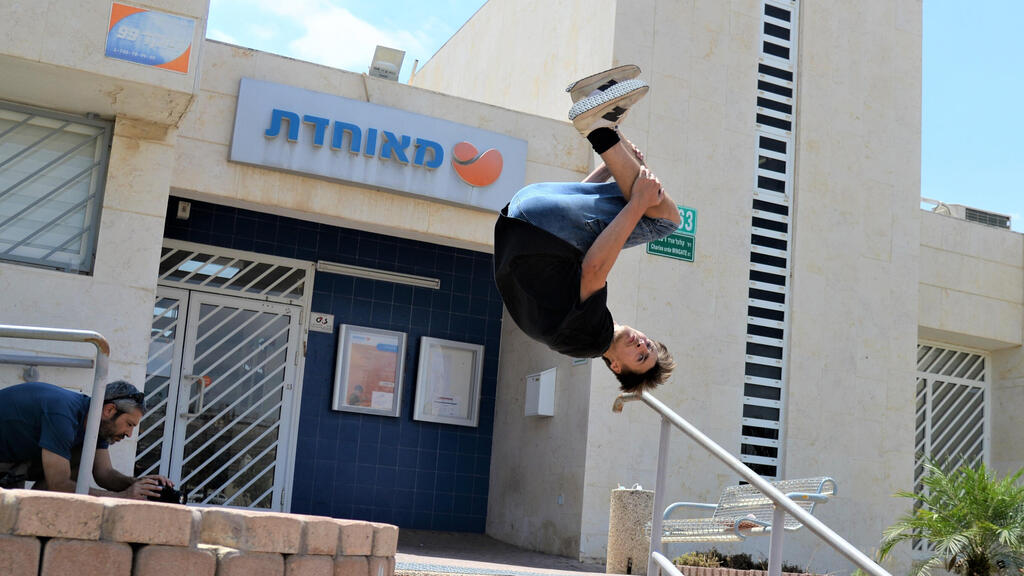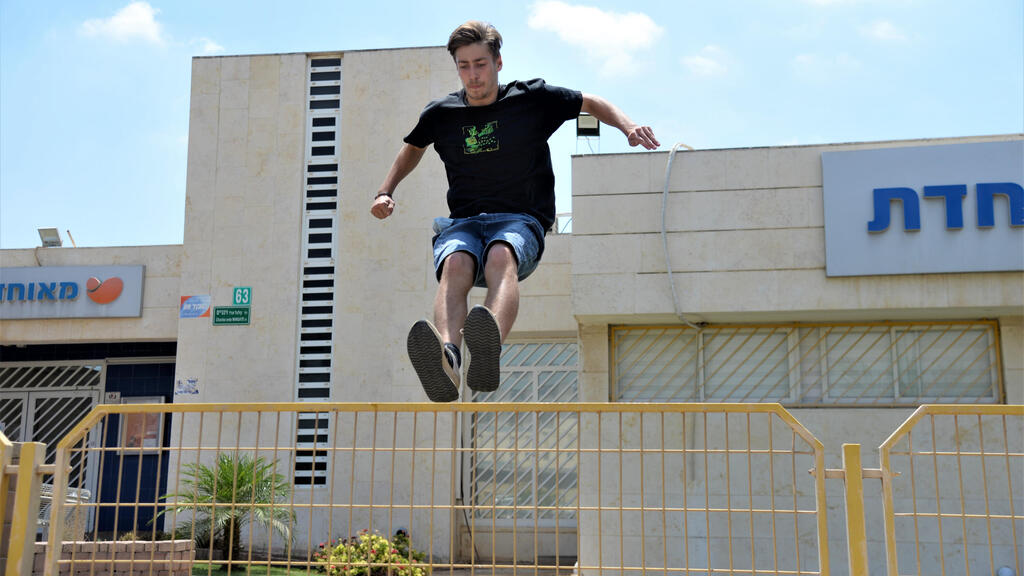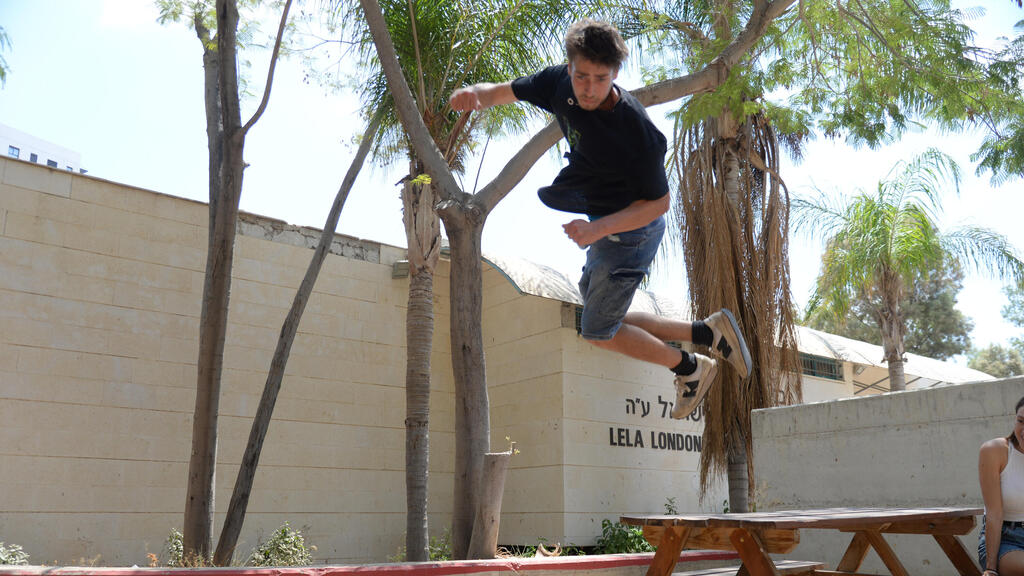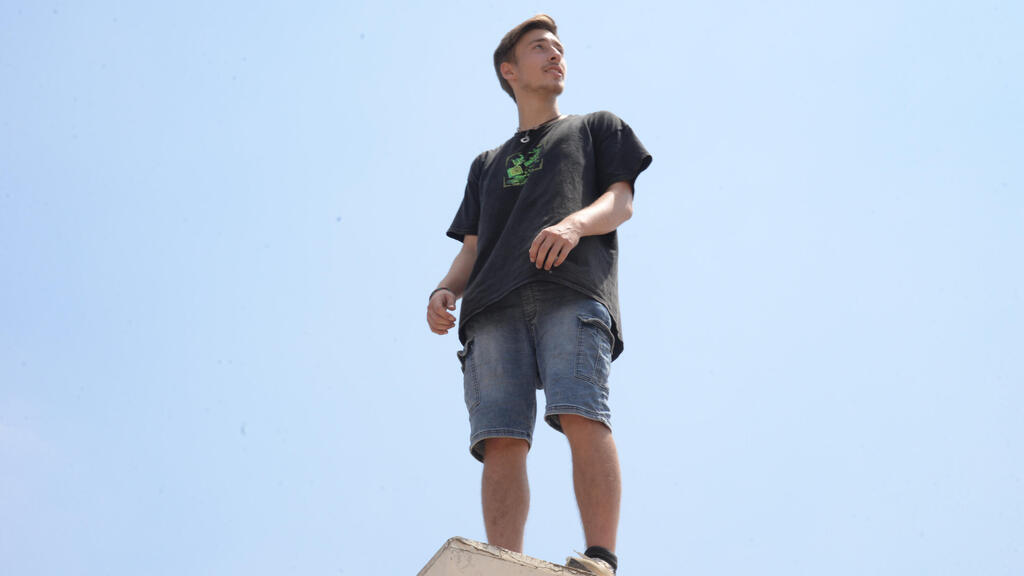Getting your Trinity Audio player ready...
For many Israeli youth, the period of the COVID pandemic became the time of personal crises, which had only exasperated due to countless restrictions.
While online education platforms were certainly a newfound challenge for children and teens, the aspect affected by COVID restrictions more than anything was the youth's social life. Children and young adults strive off of social interactions, and in their absence, a concerning number of kids turned to drugs, alcohol, and other destructive means to pass the time.
However, for some this unique period sparked positive change, presenting a chance to overcome obstacles and set new goals.
Alex Lineikin, a 16-year-old from Be'er Sheva, is one of those lucky teens. At the onset of the pandemic, he decided to take advantage of the opportunity to pick up a new hobby and pursue parkour.
Through this, he not only discovered his unique, personal talent, but also found his way into a community build around the sport.
Alex Lineikin
(Video: Yaron Sharon)
"Parkour is a sport with a goal to create yourself a challenge, and do it in the best and most efficient way," he says.
"What we do is go outside to the street or to a community center with mattresses and just find ways to challenge ourselves.
"Our goal is to get from one point to another in an effective way, while overcoming obstacles and using solely our bodies. We practice how to overcome urban and natural obstacles such as - walls, fences, railings, and boulders - by climbing, hopping, jumping and walking on all fours."
When asked why he was so drawn to parkour, a sport that is considered very niche, Alex said the aspect "of self-improvement" is what caught his attention.
"I have always loved to challenge myself and find ways to overcome problems or obstacles that look impossible at first," he said. "This attitude went really well with parkour. After a few days of practicing, I had already found myself training every day for hours."
Alex believes that part of the explanation as to why parkour is not an Olympic sport is its non-competitive nature. "Many people that I know personally are very against it and don't like the competitiveness," he says.
"They do it for the sake of challenging themselves and improving, for finding friends and traveling the world. I personally connect not only to the sport itself, but also to the community that's been built around it. Almost all of the members of the parkour community in Israel know each other, it is really an amazing community. I love every single person in it."
While he is aware that this is a sport that entails many risks, Alex that injuries and risks are a part of every sport, and life in general.
"Parkour taught me to overcome my fear and even work on it," he says. "If there is something that scares me, I know exactly what steps I need to take to get over those thoughts."
Alex's tip for beginners in every sport is to "always look on the bright side." He says that after every workout he tries to pinpoint what he learned and where he improved, and that way he's never disappointed in himself after a less productive training session.








